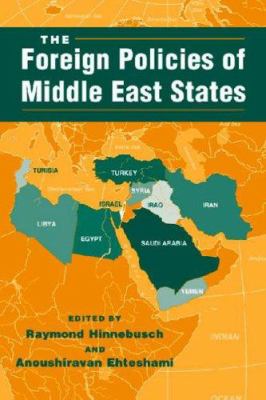
Book
|
The foreign policies of Middle East states
Copies
2 Total copies, 2 Copies are in,
0 Copies are out.
Title
The foreign policies of Middle East states
Subjects
Language
English
Published
Boulder, Colo. : Lynne Rienner Publishers, 2002.
Publication Desc
viii, 381 p. : map ;
ISBN
1588260445
Dimensions
24 cm.








